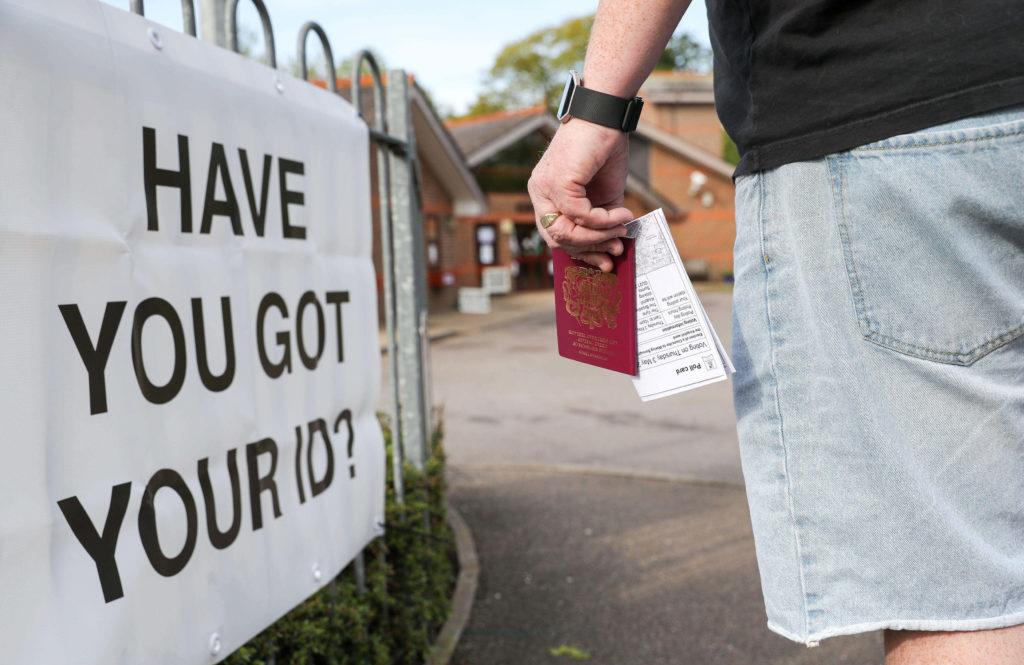Voters and polling station workers face “serious disruption” at the next general election because of the introduction of voter ID nationally, administrators have warned.
Electoral administrators surveyed for a report by the Local Government Information Unit (LGIU) raised concerns over rolling out the policy when faced with significant staff shortages.
Its study found 88 per cent of election administrators surveyed said recruiting polling station staff was a problem, with 82 per cent claiming voter ID made recruiting and retaining officials more difficult.
The report concludes that if central government does not put in additional funding to make sure staff can be recruited, administrators believe that either they will fail to find enough people to work on the elections or the local authority will have to find a way to pay staff more from already stretched budgets.


Meanwhile, a separate report for the elections watchdog has this morning urged ministers to expand accessibility after voter ID rules prevented some from participating in May’s local elections.
They warn it will lock even more out in a higher turnout poll.
The Electoral Commission’s report looked at data from 18 local authorities and found that the policy appears to be disproportionately hitting voters in certain marginalised groups.
Voters in deprived areas were found to be more likely to be blocked from voting than those in wealthier areas.
It also said that some people found it harder to vote in May because of the new rules, including disabled people, the unemployed, younger people and those from ethnic minority communities.
The new ID policy was introduced by the government, and this year’s local elections in England were the first time voters were required to show ID before collecting their ballot paper at polling stations.
The Electoral Commission study does suggest that only a small minority of voters were turned away in the May elections, but they warn the proportion could increase significantly at the next general election.
The Electoral Commission has also consistently said that the true figure for those denied a chance to vote by ID rules will be higher than recorded, as some of those who wanted to vote at polling stations might have turned away after reading the requirements at the entrance but were not formally noted.
The Commission also said that new photographic ID requirements had proven to be a “barrier” to some groups of voters and called on the government to expand the accepted forms of ID.
The next Westminster election is due to be held before January 2025.
It also said more deprived areas had a higher proportion of people turned away from polling stations compared to less deprived areas.
Director of communications Craig Westwood said: “The new voter ID requirement has posed a barrier to some voters and is likely to have a larger impact at higher turnout polls.
“We have made recommendations to expand accessibility and support for voters, which should be introduced ahead of the next UK general election to ensure large numbers of people are not prevented from taking part.”
Cllr Shaun Davies, chair of the Local Government Association, said: “Councils will need support from government to recruit additional staff so they can manage increased demand. As well as this there needs to be a centrally funded campaign to ensure as many voters as possible are aware of voter ID requirements ahead of a general election.”
Labour’s shadow minister for democracy Florence Eshalomi said: “Jacob Rees-Mogg has admitted that this shabby scheme was designed to rig the rules to lock voters out of democracy. Ministers are required to hold a comprehensive review into this discredited policy and there must be no more dither and delay.”
Elections minister Baroness Scott said: “The government has always been confident in the ability of local authorities to implement the voter identification changes whilst continuing to deliver our elections robustly and securely.
“It’s very encouraging the vast majority of voters in the polling station – 99.75 per cent – were able to cast their vote successfully at the local elections in England in May and adapted well to the rollout of voter identification in Great Britain.
“We are ensuring we fully understand how the policy has operated in practice, what has gone well and where there are any areas for improvement in the future.”
Politics.co.uk is the UK’s leading digital-only political website, providing comprehensive coverage of UK politics. Subscribe to our daily newsletter here.











